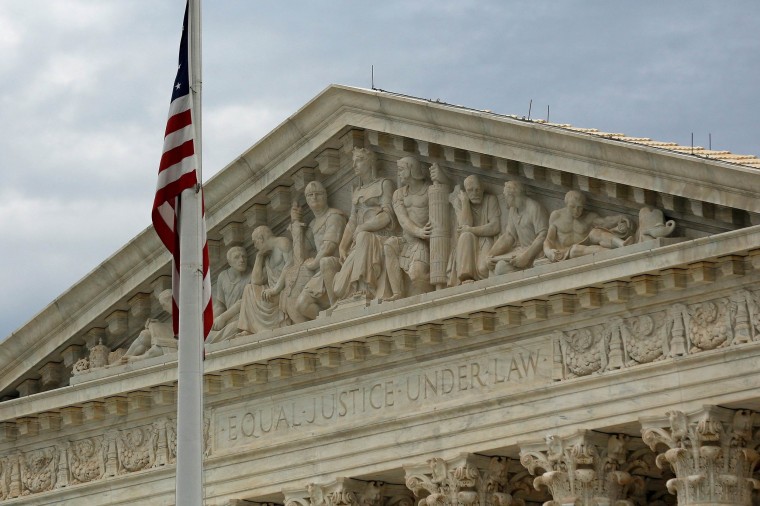Prosecutors used green highlighters to mark the names of black people on a list of potential jurors. Five black panelists qualified to serve were the first five on a government list of "definite NO's." And prospective black jurors were noted as "B#1, B#2, and B#3."
On Monday, the U.S. Supreme Court will consider whether those are signs that Georgia prosecutors impermissibly based their jury selection choices on race, ending up with an all-white jury in the murder trial of a black man.

The jury was chosen for the death penalty trial of Timothy Tyrone Foster, 18, charged with sexually molesting then killing a 79-year-old widow in Rome, Georgia. He was sentenced to death.
"The evidence of racial motive by the prosecution in this racially charged capital case is extensive and undeniable," said Stephen Bright of the Southern Center for Human Rights in Atlanta. He represents Foster.
The lead prosecutor urged the jury to impose the death sentence "to deter other people out there in the projects." The local housing projects, Bright says, were 90 percent black.
Statements made by the prosecutors during a hearing to justify their jury selection, Bright says, were unconvincing. The district attorney said a black woman was excluded because her age "was so close to the defendant." She was 34. He was 18.
Prosecutors said they excluded another potential black juror because one his sons had been convicted of a crime that was "basically the same thing that this defendant is charged with." The man's son was given a suspended sentence for stealing hubcaps.
Defending the prosecutors, lawyers for the state of Georgia say their notations and close attention to the black people in the jury pool were the result of an effort to rebut any contentions of discrimination.
Prosecutors "had to identify the black prospective jurors and ensure they noted the advantages and disadvantages" of including them in the jury in order to be prepared to respond to challenges of racial bias, the state argues in its legal briefs.
Half a century ago, proving bias in jury selection required a defendant to show that prosecutors had systematically excluded blacks over a long period of time. But in a 1968 case called Batson, the Supreme Court ruled that each trial was to be examined on its own, a decision intended to further discourage bias in jury selection.
A group of former prosecutors, appointed by both Republicans and Democrats, filed a friend of court brief saying that the evidence of racial bias in choosing Foster's jury wass overwhelming.
"If this court does not find purposeful discrimination on the facts of this case, then it will render Batson meaningless."
The Supreme Court will issue a decision by late June.
